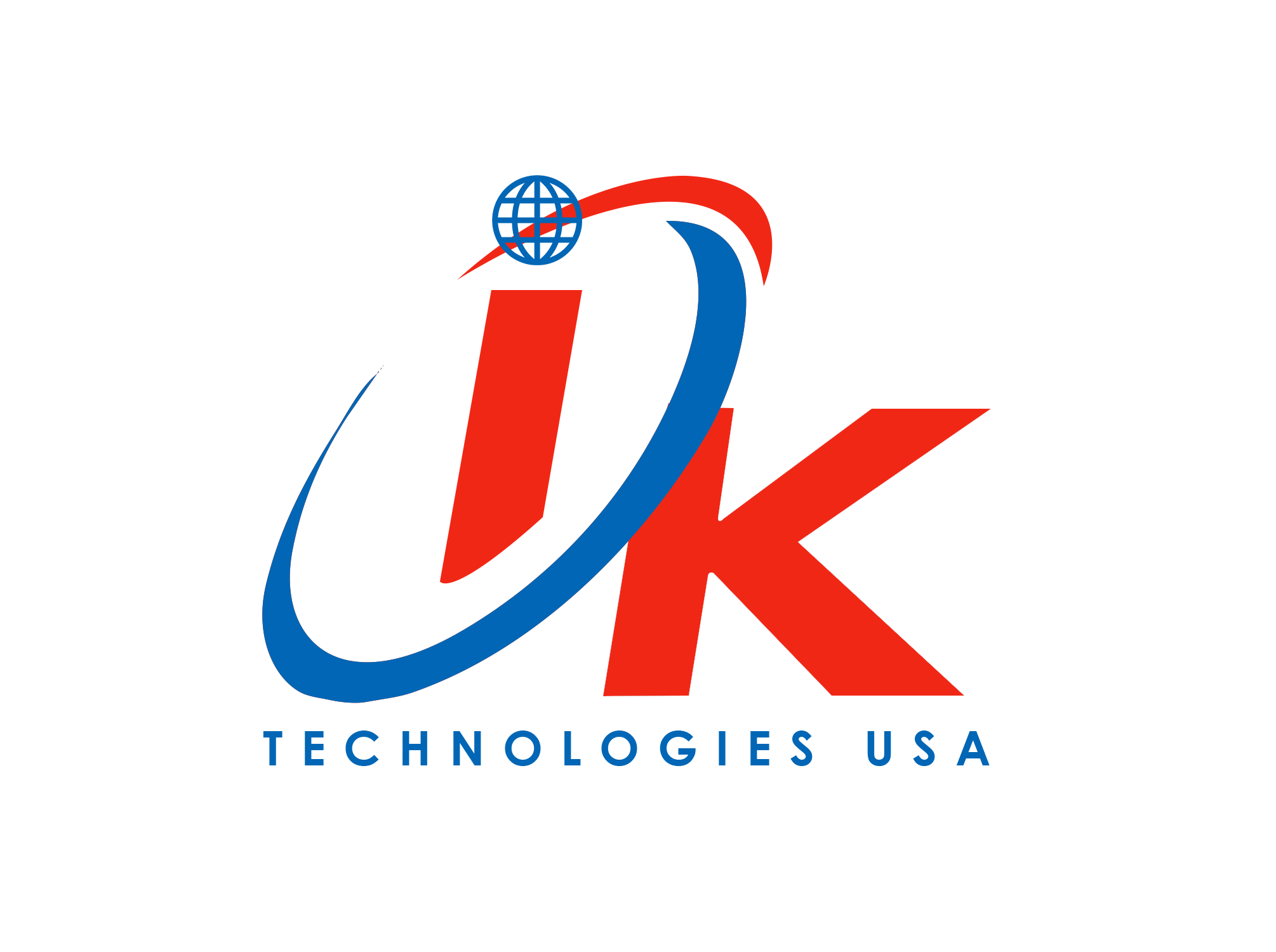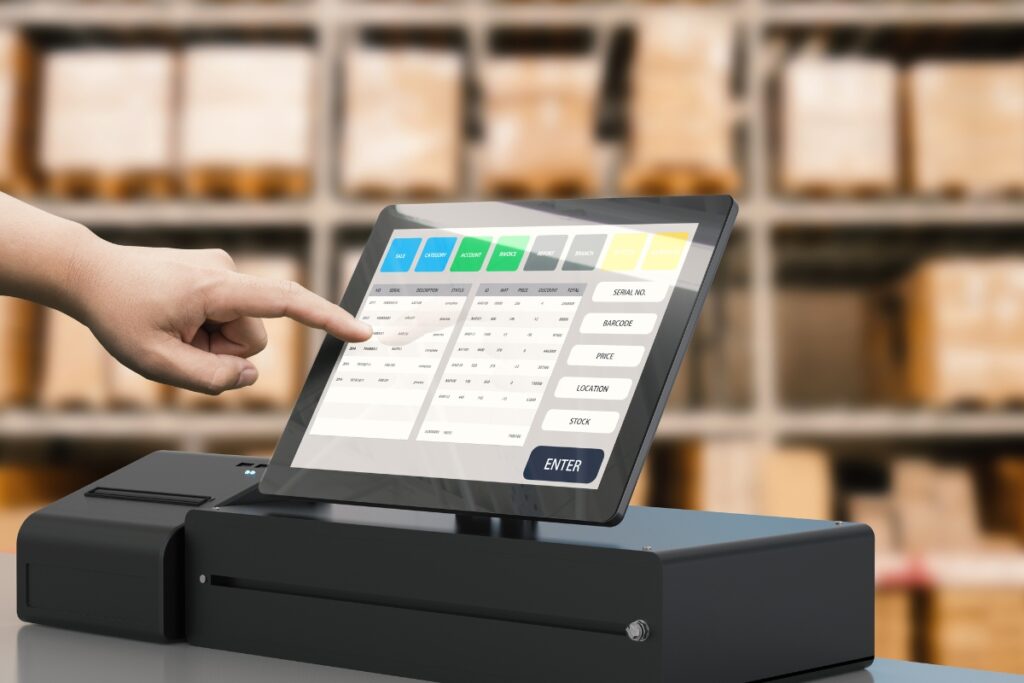Modern healthcare rapidly embraces the latest technological advancements, showcasing that digitalization isn’t just for large corporations but benefits small local companies too. Despite the growing popularity of mobile solutions, the healthcare industry maintains a significant reliance on web-based software. Even as mobile software evolves and smartphones become more sophisticated, healthcare web development remains a crucial aspect.
For various healthcare-related businesses, the creation of web-based software is a necessity. Achieving market success and gaining audience recognition are nearly impossible without it. Although the process may seem nuanced and time-consuming, entrepreneurs must overcome the initial challenges to embark on building their first custom web-based solution.
To simplify and enhance all this, IK Technologies has developed a detailed guide containing all relevant information about healthcare web development. Within a single editorial, we’ve compiled valuable tips and insights covering industry trends, favored solution types, and a step-by-step algorithm for software production and pricing. Let IK Technologies be your guide to healthcare web development.
Top 5 Trends Shaping Healthcare Technology
Staying attuned to the latest trends in the technology world has become a key ingredient in the recipe for success for healthcare business owners globally. Let’s delve into the top five healthcare web app development trends that will continue to wield influence for the foreseeable future.
- 1. Focus on Preventive Medicine:
The surge in the popularity of preventive medicine is changing how people approach their well-being. Seeking tools to enhance their quality of life, individuals turn to healthcare website and application development. Whether it’s fitness apps, mental health solutions, condition monitoring software, counseling platforms, or various eHealth solutions, entrepreneurs have a plethora of opportunities in this space. The demand for IT solutions in preventive care is robust in 2023, and this trend is likely to persist, offering entrepreneurs a significant opportunity for success.
2. Medical Billing Outsourcing via Cloud Computing:
The global pandemic laid bare numerous healthcare challenges, with staff shortages being one of the most significant. This scarcity affects all medical processes, including administrative tasks and billing. Outsourcing, coupled with modern technology like cloud computing, emerges as a solution. Opting for external cloud solutions for medical billing allows healthcare businesses to address staffing needs without exorbitant costs, creating a win-win situation. The global medical billing outsourcing market is projected to grow at a 12.5% CAGR by next year, according to a study by MRFR.
3. AI and IoT:
Artificial Intelligence (AI) and the Internet of Things (IoT) have consistently topped technology trend lists for years. Once skepticism waned, business owners recognized and appreciated the benefits these technological advancements bring to modern healthcare.
AI Adoption: Integrating AI in web-based healthcare solutions addresses various challenges, automating administrative tasks, analyzing complex real-time medical information, enhancing patient engagement, improving risk assessment, and more.
IoT Technology: IoT is equally transformative in healthcare web development, benefiting patients, medical facilities, and health insurance providers. Data collected from IoT devices facilitates an enhanced personalized healthcare experience, equipment tracking, asset management, and even reduces fraud claims. The versatility of IoT contributes to its market growth, projected to reach USD 960.2 billion by 2030. Embrace the potential of AI and IoT in healthcare to propel your business forward.
Creating sophisticated web software to enhance user engagement has become increasingly complex in the healthcare website development. The demand for a comprehensive, all-inclusive experience has surged, driven by the audience’s aversion to spending hours scouring the internet for relevant medical information. Robust healthcare web applications address this need, providing users with a seamless experience.
Patients now expect to receive diagnoses, schedule appointments, and purchase medications effortlessly using various devices such as laptops, PCs, tablets, or smartphones. A multifunctional web-based medical portal streamlines these processes with just a couple of clicks. The persistent demand for extensive healthcare web solutions is expected to endure for an extended period.
Telemedicine:
An indispensable trend in healthcare is telemedicine. The global pandemic accelerated the adoption of telemedicine and online healthcare services. Many individuals were pleasantly surprised by the convenience and effectiveness of this practice. Beyond the pandemic, the longevity of telemedicine remains significant. Even if COVID-19 is no longer a threat, online medical consultations will continue to be sought after by a diverse audience, including those with chronic conditions, first-time parents, and individuals with disabilities.
While numerous healthcare IT trends, such as predictive modeling and data mining, are noteworthy, this editorial focuses on the most popular tendencies with maximum outreach. In the ever-evolving landscape of healthcare web development, addressing user needs through sophisticated and user-friendly software remains a top priority.
Widely-Used Healthcare Software Solutions
Healthcare web development and medical software have a variety of solutions for every conceivable healthcare-related task. From patient record tracking to data exchange and invoicing, there’s a digital solution for it all. While it would take several hours to dive into the many options available, let’s save time and focus on five of the most popular types of medical software that you might consider developing.
1. EHR/EMR:
In 2023, EHR/EMR systems stand out as the most popular type of healthcare software. The appeal is evident as these solutions simplify and automate a wide range of medical tasks. From tracking patients’ records to facilitating data exchange and streamlining invoicing processes, EHR/EMR systems are indispensable for healthcare business owners. Notably, the adoption process for EHR/EMR is ongoing, with Insight Partners predicting global market growth at least until 2028. Consider developing this essential medical software to meet the evolving needs of healthcare professionals.
2. Telemedicine:
As previously highlighted, patients are increasingly exploring the opportunities offered by telemedicine platforms. From a business perspective, the versatility of telemedicine functionality allows for different executions based on customer needs. It could range from a simple video conference function to a comprehensive package, including video calls along with additional communication tools like voice chat, text chat, and multimedia exchange.
3. Patient-Centric Apps:
This diverse category of healthcare software prioritizes the patient’s needs, putting them in control of their healthcare journey. Examples include personal health-tracking apps, symptom checkers, fitness and wellness platforms, online medical assistants, and dieting apps. These solutions empower patients to be proactive in managing their health without imposing excessive restrictions. The combination of usability, efficiency, and freedom contributes to the widespread popularity of such software among the general public.
4. Medical Training and Education Software:
For healthcare professionals, continuous training is crucial in maintaining preparedness and minimizing errors. Medical Learning Management System (LMS) development has become a popular choice for healthcare businesses. While it may seem like an initial investment, an LMS for health workers yields multiple benefits. It enhances service quality, improves communication among staff members, boosts brand loyalty, and fosters a positive team environment.
5. Healthcare Ecosystems:
Complex “all-in-one” software systems like Healthcare Management Systems (HMS) simplify the management of processes within even the largest medical facilities. These ecosystems, rich in features, often combine Electronic Health Records (EHR), Customer Relationship Management (CRM), and telemedicine functionality with medical billing, tracking and monitoring features, asset management, and medical imaging software. As custom solutions, healthcare ecosystems can integrate almost any IT innovation the industry has to offer, making them versatile tools for comprehensive healthcare management.
Understanding the Stages of Healthcare Web App Development
Certain entrepreneurs believe that healthcare web app development is solely the responsibility of the technical team. However, this approach may not be the most beneficial, as it makes the business owner entirely dependent on the contractor. It’s crucial for a business owner to be aware of the main stages of the development process to exercise better control over the workflow.
1. Initial Contact:
At this stage, an entrepreneur shares their vision and existing documentation with potential contractors. The contractor provides a ballpark estimation for the project, and if the customer is satisfied, a contract and Non-Disclosure Agreement (NDA) are signed. Until this point, the business owner has the freedom to change their mind and select another tech partner.
2. Discovery:
The discovery stage involves information collection and requirements formation. Various types of requirements, including business, stakeholder, functional, non-functional, design, and integration, are discussed. Project specifics, compliance, and interoperability are addressed, and supporting materials, such as a HIPAA compliance checklist, can facilitate communication.
3. Design:
Design goes beyond aesthetics; it focuses on creating a user-friendly interface with impeccable UI/UX. The goal is to ensure uninterrupted user experience, guide users toward desired actions, and form a positive brand image. Wireframes, prototypes, and screens are prepared for different devices, emphasizing adaptive design for modern healthcare web solutions.
4. Development:
In the development stage, all requirements are translated into lines of code to create the digital solution. This stage is broken down into sprints, with each delivering specific functionality. It includes front- and back-end development, data migration, and third-party services integration if needed.
5. Testing:
Quality assurance is paramount for healthcare website and app development due to high security and performance standards. QA engineers collaborate with the development team to meticulously test all aspects of the system, create bug reports, address issues, and conduct additional testing to ensure flawless operation.
6. Launch:
At the launch stage, the newly developed solution becomes accessible to the public. The provider ensures all systems work properly on the live server. If the customer is satisfied, the contractor hands over the system, including all documentation, to the business owner.
7. Maintenance:
Ongoing support and maintenance are essential for any digital solution. Tasks include regular security checks and updates, bug fixing, performance enhancement, and the addition of new features or third-party services integration. The business owner should have a team ready to handle potential IT challenges that may arise along the way.
Key software features to consider during healthcare web development
In custom healthcare web development, creative freedom is a powerful asset. Any idea can come to life with the right tech team, time, and resources. Yet, some business owners may see this flexibility as a challenge because they lack experience in determining which software functionalities are vital for the project’s success.
To simplify this decision-making process, here’s a list of the top 10 healthcare software features, categorized as mandatory and optional.
Top Five Mandatory Healthcare Software Features:
1. Booking:
Include functionality for easy appointment scheduling, catering to users who prefer online booking. Simplify the process for an enhanced user experience.
2. Chatbot:
Facilitate around-the-clock customer support through a chatbot. Enhance user engagement and support accessibility.
3. Patient Portal:
Prioritize security and privacy with a dedicated patient portal for registered users. Incorporate features like a knowledgebase, media library, video chat, visit/purchase history, payment gateway, file upload/download functionality, and more.
4. Analytics/Reporting:
Integrate robust analytics and reporting functionality to enhance healthcare quality, streamline workflows, and gain valuable insights for marketing strategies.
5. Search & Filtering:
Ensure straightforward navigation with an extensive search and filtering system. Users should swiftly access relevant information through keyword searches, category filters, and specific time periods.
Top Five Optional (But Beneficial) Healthcare Software Features:
1. Healthcare CRM:
Invest in a healthcare Customer Relationship Management (CRM) system to build personalized medical care experiences, develop patient interaction strategies, and enhance customer loyalty.
2. Electronic Health Records (EHR):
Consider EHR software development for increased productivity, better security, improved data processing, smooth communication, and adaptability to market and audience requirements.
3. Telemedicine:
Embrace the future of healthcare with telemedicine functionality, offering robust online consultations.
4. Billing:
Optimize financial tasks by incorporating billing and invoicing functionalities.
5. Payroll Tracking:
Simplify payroll management with custom tracking software, minimizing errors, automating calculations, generating payslips, and efficiently managing taxes and compensation expenses.
Understanding these essential and beneficial features is crucial for the success and efficiency of your healthcare software solution.
Factors influencing the cost of a healthcare web solution
Understanding the expenses involved in healthcare web development is crucial, and it’s a bit like figuring out a complicated puzzle. Different IT providers can give you different price tags for the same services, and here’s why.
How We Build It:
1. Off-the-Shelf vs. Tailor-Made:
Off-the-Shelf: It’s like buying ready-made furniture – quick and cheaper, but might not fit perfectly. Fixed fees, simple setup.
Tailor-Made: Like having a suit custom-made – takes more time and money, but fits your business perfectly.
2. Cloud or Own Server:
Most go for cloud solutions – it’s like renting a workspace that’s flexible and affordable.
Who’s on the Team:
1. Our Team or Theirs:
In-House: We hire a local team, more control but more costs like insurance and office space.
Outsourcing: We hire a remote team – cheaper and more talent options.
2. Location Matters:
Different places have different costs per hour:
– North America: Higher, around $75-150
– Western Europe: Also high, around $55-200
– Latin America: Mid-range, about $35-60
– Eastern Europe: More budget-friendly, $25-45
– Asia: Affordable, $22-40
How Complicated Is It:
If it’s like building a simple treehouse, it won’t cost much. But if it’s like constructing a whole mansion, more time and money.
How Fast Do You Need It:
If you need it super fast, like ordering express shipping, it’ll cost more because the team might need to work extra hours.
While there are other things like the kind of technology used or how fancy the design is, they don’t shake up the price as much. Knowing all these things helps us understand why building a healthcare website can have a range of costs.
Selecting the Ideal Healthcare Web Development Team
Creating a successful healthcare digital solution isn’t a one-person job. It’s a group effort, and putting together the right team is crucial for a smooth development process. Whether you’re hiring in-house or outsourcing, here’s what to look for:
Who’s on the Team:
1. Experts You Need:
Business Analyst: The strategist who understands your business needs.
Project Manager: The one who keeps everything on track.
Developers (Front and Back-end): The builders of your digital solution.
Designers (Graphic and UI/UX): The creative minds making it visually appealing.
QA Engineers: The testers ensuring everything works perfectly.
2. Extra Hands (if needed):
Team Lead: For complex projects that need extra technical guidance.
DevOps Expert or Mobile Developers: If you’re diving into healthcare mobile app development.
How They Work:
Communication is Key:
Multiple Channels: Especially crucial for outsourcing. A good partner offers different communication options.
What to Look For:
1. Proven Track Record:
Portfolio Check: Look at their past projects, especially ones similar to what you want. It’s like checking their resume.
2. Transparency Matters:
Information Availability: A reliable provider has customer reviews, an active website, and a strong social media presence.
Building the right team sets the stage for success in healthcare web development. From strategy to design and testing, each role plays a crucial part in turning your vision into a marketable digital solution.
EndNote
Unlock the potential of your business with healthcare web development. For a reliable IT partner, look no further than IK technologies. Reach out to us, and we’ll address your queries and offer a complimentary project estimate. It might just be the start of your success story!







































